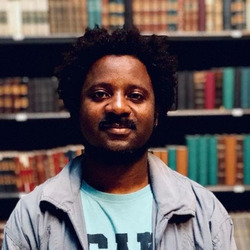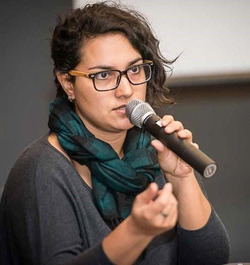Virtual Seminar: Do Black Lives Matter in Brazil?
Co-sponsored with the Kellogg Institute for International Studies and the Department of Africana Studies.
About five million African slaves were brought to Brazil, approximately nine to ten times as many as were trafficked to North America. As a result, Brazil has one of the largest Black populations in the world. Ever since abolition in 1888, Afro-Brazilians have endured poverty, social injustice, systemic racism and violence. Paradoxically, Brazil has projected the notion that its high miscegenation produced a “racial democracy,” in contrast with countries like the United States. Is there any truth to that? In the 21st century, do Black Lives Matter in Brazil? What has civil society done to fight social inequality and systemic violence against the Afro-Brazilian population? Is police brutality as big of a problem as in the United States? How can society combat racism under a far-right presidential administration? How is Brazil positioned in the transnational Black Lives Matter movement? These are some of the questions that will be addressed by a group of prominent panelists dedicated to becoming actors of social change in Brazil.
Panelists: Vítor Del Rey, Juliana Farias, and Gladys Mitchell-Walthour
Moderator: Marcio Bahia
PLEASE NOTE: Indicated event times are U.S. Eastern Time.
Panelists
Vitor Del Rey

Vítor Del Rey is the president of GUETTO: Urban Management of Entrepreneurship, Work and Organized Technology. Vitor obtained his BA in Social Science at FGV where he holds the position of Consultant at the Center for the Development of Public Management and Educational Policies alongside former Minister of Education Henrique Paim. He is currently undertaking a Master’s degree in Public Administration at the Brazilian School of Public and Business Administration of FGV (Foundation Getulio Vargas) under the supervision of Mr. Paim. Vitor is a political activist for the civil rights of Black people in addition to being a member of the Black Slavery Truth Commission in Brazil. He is the creator of the Kilombu and eMude apps, respectively for entrepreneurship and public transparency. He is also the head of the virtual community "A Ponte Para Pretxs".
Juliana Farias

Juliana Farias is an anthropologist and works as a postdoctoral researcher at the Gender Studies Center PAGU / UNICAMP. Since 2004, she has been conducting research on militarization, genocide of Black people, state violence and human rights violations in favelas and peripheries in Rio. Alongside Natasha Neri, she co-authored the plot and script for the documentary Police Killing (2018).
For more info on the groundbreaking documentary Police Killing, visit: http://www.autoderesistencia.com.br/police-killing
Gladys Mitchell-Walthour

Gladys Mitchell-Walthour is an Associate Professor of Public Policy & Political Economy in the Department of African & African Diaspora Studies at the University of Wisconsin-Milwaukee. She is a political scientist specializing in Afro-Brazilian political behavior, black racial identity, discrimination, affirmative action and Bolsa Familia. She was the 2018-2020 president of the Brazil Studies Association. She is also Co-Coordinator of the US Network for Democracy in Brazil. She published the book “The Politics of Blackness: Racial Identity and Political Behavior in Contemporary Brazil (Cambridge University Press, 2018). She has published in numerous peer reviewed journals including Latin American Politics & Society, Politics, Groups, and Identities, and the National Political Science Review. She was a Lemann Visiting Scholar at the David Rockefeller Center for Latin American Studies at Harvard University in 2014. She holds a PhD from the University of Chicago, a Master of Public Policy from the University of Michigan -Ann Arbor, and a BA from Duke University.
Moderator
Marcio Bahia

Professor Marcio Bahia specializes in Brazilian Literary and Cultural Studies. More particularly, his current research focuses on the tecnobrega music scene. Tecnobrega is a musical genre that splices largely original work with popular music. Bahia studies how technology is adopted in the tecnobrega scene and how it is used in the ongoing process of cultural legitimization of rhythm. On the topic, Professor Bahia has published “The Periphery Rises: Technology and Cultural Legitimization in Belém’s Tecnobrega” in Ellipsis 13 (2015):33-54, the Journal of the APSA (American Portuguese Studies Association). He is also currently working on a book-length manuscript tentatively entitled “Tecnobrega and other revolutions: technology and cultural legitimization in the Brazilian peripheral music scene.” Professor Bahia teaches courses in Portuguese Language and Brazilian Literature, Culture and Society, such as Brazil Beyond Stereotypes, Race and Social Inequality in Brazil, Brazilian Literary Modernism and Brazilian Cinema: Introduction to Film Analysis.
